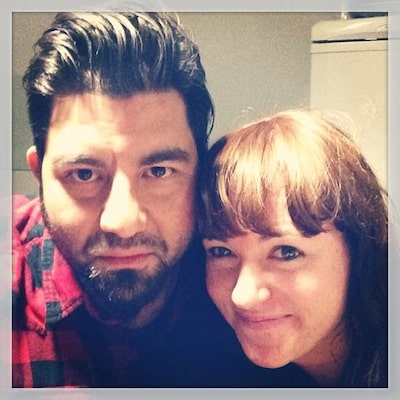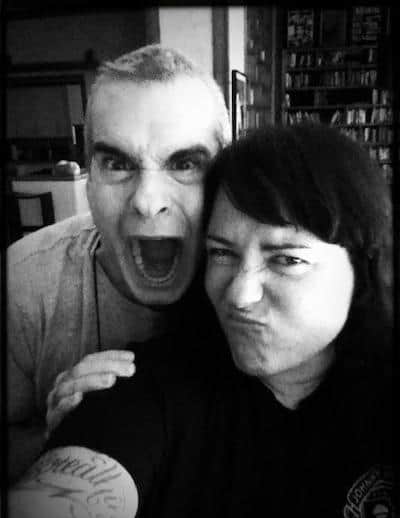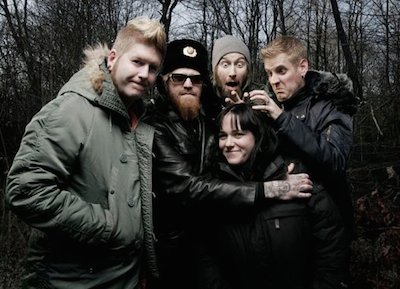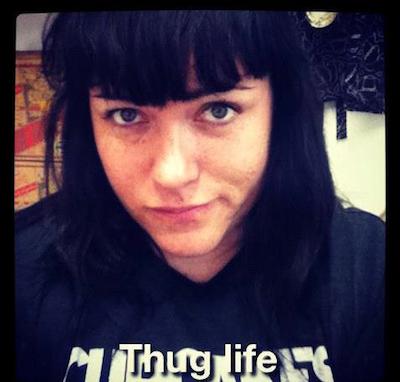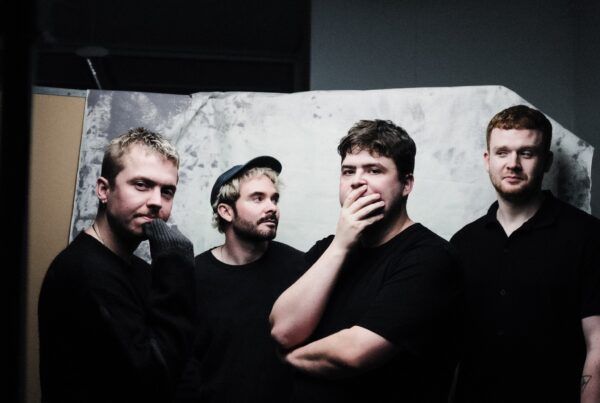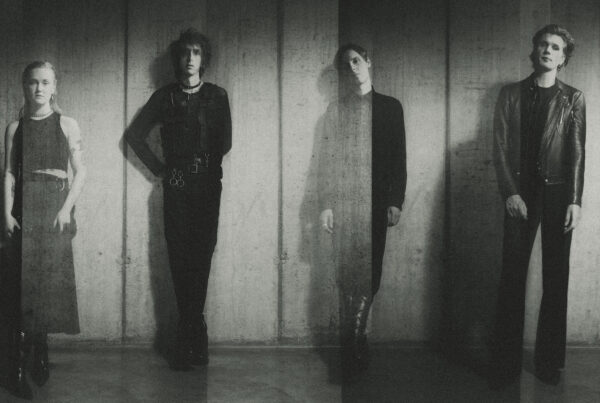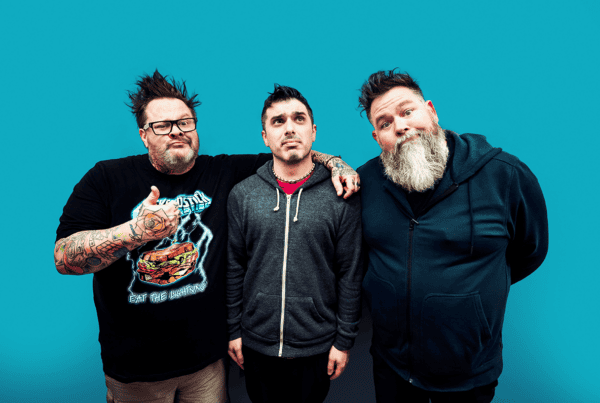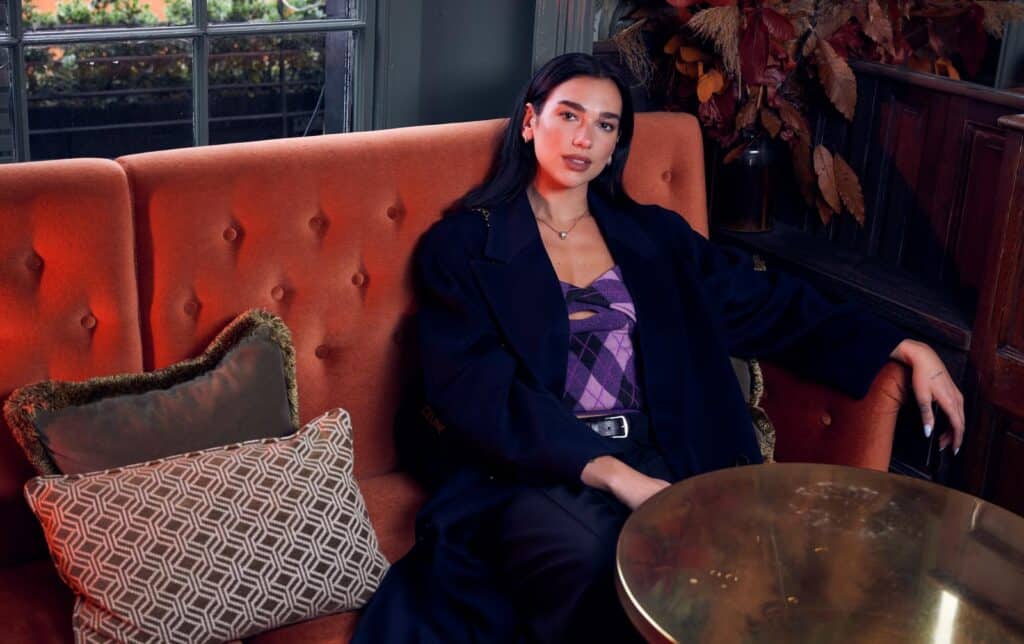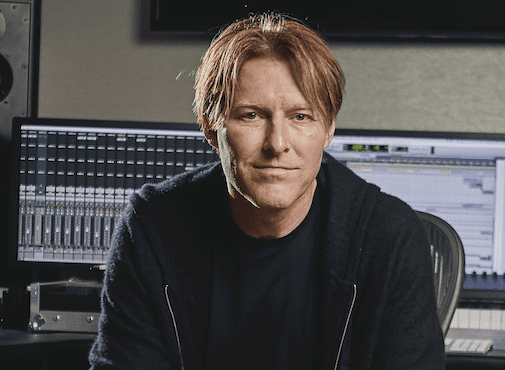For our next industry spotlight, we had the great fortune of chatting with Emma Van Duyts, founder of Public City PR. Founded in 2007, Public City represents some of the world’s well known and best loved metal bands around, from Deftones (pictured), Mastodon (pictured), The Gaslight Anthem, Taking Back Sunday, The Bronx, Henry Rollins and Parkway Drive to name just a few. We wanted to know what it takes to steer such a ship of pure metal power…

S] How did you get your break?
E] “I knew what I wanted to do when I was really young. Probably around 11 or so. I was totally obsessed with music when I was a kid. My sister (who is twelve years older than me) was a punk when I was little, so she was playing me bands like Dead Kennedys, Black Flag and Siouxsie and the Banshees and I had my parents’ influence of Motown and The Beatles. When I started to really get into music myself I into Michael Jackson and Bros probably to rebel against my sister a little bit! In my early teens I absolutely knew what I wanted to do. I read a magazine article about someone who did my job and I was like ‘That sounds like the perfect thing for me.’
I worked hard at school and really focused my attention on my English and Business Economics because I knew that that was what was going to help me get to where I wanted to be. I got work experience at East West Records (which was part of at Atlantic/WEA Records) when I was sixteen and it was supposed to be a three month placement and then it was extended to six and then extended to nine because they liked me and I was a hard worker, but they couldn’t take on a permanent member of staff at the time. I just worked hard and did anything anyone told me to do. If I made someone a cup of tea, I made it like it was the best cup of tea I ever made in my life. I asked questions, and I didn’t just sit there doing nothing, waiting for someone to give me something to do. I’ve noticed that with a lot of younger people, they’re kind of lazy to be honest. Some have a bit of an attitude, it’s like they don’t want to be there and they are just doing it because they have to. If you’re going do a work experience placement somewhere, you need to be doing something that you love and something you want to get into as a career and not waste people’s time.
I think if you’re interested in something you give it a hundred and ten percent no matter what it is. You need to have some kind of direction in life. A lot of people say, ‘I want to work in the music industry’. Well, what do you want to do? There are so many elements of it. You have the whole artist side of things – being a musician, producer or artist management. You can get in to the tech side of things working in a studio, being on the road, or you have the label side of things with Marketing, Publicity, Radio and TV promotions and more. There really are so many different areas of this industry and if you don’t have a completely solid idea of what you want to do to, maybe do a week or so in each department and then you might realise that something like radio promotions isn’t your thing, but you love doing marketing and that might be your forte. Give it a go!”
S] When you started out you were working, you had the opportunity to work with the guys like Glassjaw, who you still have quite good relationships with, and Green Day as well when you were working at Warner Bros, can you tell me what you learned?
E] “I definitely started from the bottom. I was an intern first and I got my job at Warner Bros, when I was seventeen which was incredible. I was the Press Assistant there, so my job was doing the mail-outs, all the press cuttings, making people tea, answering the phones. Back then we used to go through all the magazines and pull all the press cuttings and then you’d have to cut and paste them and file them away. So, it was a lot of filing and running around for people and just generally being an assistant to everybody in the press department.
I learned a lot just from everyone I worked with. I didn’t have the foggiest idea how to get a band in a magazine when I first started. I started by listening to what people would say and then asking questions and the publicists would be like, ‘Oh, this is what you would do in this situation.’ And then my boss, legendary PR Barbara Charone let me start doing some regional press. So, I started talking to regional papers if we had a band on tour or an album out and that’s kind of how I started really. When I had proved myself, I got given my first bands (Deftones, Static-X and Orgy) and so it began.
I’m still learning every day. I don’t know everything. I don’t know everyone who works for every magazine. The most important skill of this job is communication. If you don’t know someone, you reach out to them. I still think nothing beats a phone call or meeting someone in person – we have become so used to just emailing everyone – it’s a bit lazy. I always do my best to chat to people on the phone and not just e-mail all the time. It’s more personal.”
S] How important is it in the industry now to have that personal connection, where maybe you make phone calls and face-to-face meetings or even just chats?
E] “Absolutely! It’s imperative! We all get a million e-mails a day. I have a certain amount of bands that I work with at one time. When you think about how many other publicists are out there, all emailing the same person. Can you imagine how many e-mails Kerrang!, Rock Sound and Metal Hammer get a day? That would be frightening! Genuinely, I’m very lucky to work with all of the people that I do and I have a lot of really good friends that work in this industry. We all do our best to help each other out because at the end of the day that’s what you’re trying to do; trying to help the magazine, help the bands and just get as much good exposure for rock music as you can.
With Public City, I’m very loyal, I work my butt off and I’m very passionate about what I do and the bands that I work with. We don’t take on everything we are offered. I’m very honest with bands that if I listen to some music and it’s not personally for me, or I don’t get excited about it, I turn it down and I always try and put them in the direction of another publicist or pr company. It’s good to have relationships with other publicists too. I have a lot of friends who are PRs and as much as there is the business side to things, they’re your peers and they are people that you respect. If someone does a great job on a press campaign for a band I always congratulate them. It’s also always nice to have someone to reach out to when you’re not sure what to do about a situation or just to bounce ideas off someone.”
S] Public City is your thing and obviously going from working for somebody even with the reputation that Warner does, how was it setting up on your own?
E] “It was definitely scary. I’d been at Warner since I was sixteen as an intern, and left when I was thirty. I’d grown up working for this company and it just kind of got to a point for me where I felt I needed to do a bit more with the artist development side of things, and I was actually thinking of going into tour management when I decided to leave. I was so nervous. I kept thinking ‘What happens if no one wants to work with me? Or the tour managing doesn’t work out?’ Luckily enough as soon as I told people that I was leaving and that I was setting up on my own, I had numerous people asking me to do bands press and bands hitting me up directly too. I was like, ‘Holy sh**! This might actually be all right!'”
When I first sent my e-mail out to all my contacts as I was about to leave Warner, I said: ‘I’m leaving after thirteen years but I’m setting up my own company and this is my roster.’ It was Deftones, Mastodon, Disturbed and a few more. Then I had Parkway Drive approach me through Epitaph and I started working with them immediately on the ‘Horizons’ record which was awesome. I got an e-mail back, maybe within fifteen minutes of me sending out that e-mail, from Henry Rollins’ manager. He was like ‘Henry likes you. We need a publicist in England, wanna do it?’ And it was that e-mail that let me know that I was going to be all right! I was very fortunate to be in a position where I already had a roster of bands and I’d already been doing it for thirteen years at that point, and could hit the ground running.”
S] From a student’s point of view, what do you think the biggest challenges are for somebody coming out of university? How would you advise they go from that kind of daunting graduation point to trying to get in a position where they can learn from somebody like you?
E] “I think it’s kind of the same thing I was saying before. Writing to people, e-mailing people just saying ‘I’m studying this at uni, this is what I’d like to do. Do you have a week or two where I could come and work with you and learn something?’ A lot of people nowadays are doing internships, most of them are unpaid. When I got into this the government Youth Training Scheme that was still around, you were sent on courses and I went to a Business Administration course so I could learn to type and get other secretarial skills. Then I got my work placement through them and you got paid a certain amount of money a week to cover your travel and lunch. It’s such a shame it’s not around anymore. It is really hard for young people to go from school or college and just try and get into the job that they’ve been studying for, for three years. Just because you’ve got a university degree doesn’t mean you are just going to walk in and be a publicist or a marketing director all of a sudden. You have to go in at a ground-entry level and work your way up.
I think also with people living in different parts of the country, everyone thinks that London is the music industry mecca – it is of course, but you’ll find that there’s a lot more companies starting up regionally as well, whether they are promotion companies or little labels, merch companies or other press companies. There’s no guarantee of a job at the end of your work experience. Mine was three months and I ended up being there for nine and then a position came up, I went for the interview and I got it, and that was how I got my foot in the door. There’s a definite element of right place at the right time and the people that you get to know.
If you work hard enough and show that you have a passion for something and your willingness to learn will really go a long way in finding a job. You really can’t just walk out of university and into the first job you go for an interview for. So definitely, definitely try and do work experience if you can and they can be a little hard to come by because everyone is trying to get them. I know Kerrang! take on interns for a couple of weeks at a time and those slots get booked up but I think at least, if you don’t ask, you don’t get.”
S] Have you had a defining moment in your career?
E] “There have been so many! It’s always a pleasure to see a band that you’ve worked with from its infancy stages, right at the beginning, to then see them absolutely smash it at a show. I’m very proud of the work we have done with While She Sleeps, we started working them really early on and I’m thrilled at how far we’ve come in the last few years and I think there are really big things to come from that band. Not that long ago, I started to make a list of all the bands and artists I have worked with over the years – it’s pretty epic!
Working with Green Day was great because I kind of saw the ups and downs of their career from ‘Dookie’, through to ‘American Idiot’. I remember very clearly saying in a meeting ‘This is gonna be the return of Green Day. This is going to be the record that turns it all around. People are going to listen again.’ Obviously it went way beyond what I ever thought it was going to do. So, that was a very exciting time.
My entire time with Deftones has been nothing but wonderful. Not only are they my favourite band musically, the fact that I get to work with them too is such an honour. Not that you play favourites, because you know, I love all the bands that we work with but Deftones are family. Again, seeing those ups and downs and through the very sad times , especially with Chi’s [Chi Cheng] accident and him passing away last year and how they’ve kind of resurrected, and have carried on through all those kind of hardships.
I’m looking around my office now and we’ve got all covers up on the walls and that in itself is a massive achievement when you think about these bands that have gone from their little introducing features in a magazine and now they’re on the covers. That’s a real highlight for me. Whenever I get a cover I’m always still absolutely stoked. It’s a huge deal. When you get it in your hands you’re like ‘This is great!’. I know that I’ve definately gone into WHSmiths and Tescos and I’ve moved around magazines to make sure that they’re at the front!”
S] It’s really nice to see that that level of enthusiasm is still with you. You make it look like real fun.
E] “Well, I think that’s the thing at the end of the day, it’s the music industry. It has got to be fun. Otherwise, what’s the point? If you’re not enjoying it, then don’t do it. Do something else! I was very lucky that I got into my job when I did and I never took it for granted. I have worked very hard to get where I am. Now, it’s twenty years later and look where we are. I’d like to think that we’re one of the best companies out there and I think that our roster is testament to that. The rest of the team at Public City are so integral to this being a successful company. Hayley Codd – the queen of TV and Radio Promotions is one of the hardest working people I have ever met. She fights tooth and nail for her bands and has had such great success with Twin Atlantic, You Me At Six and a host of other awesome bands at Radio and TV. Hayley is really awesome. The new addition to the team Haaris is fast learning the ropes and is such an asset to us. He’s one of the funniest people I know, and being a musician himself – go and check out The Worldonfire – they’re awesome – he gets on really well with the bands and they can get all nerdy about gear. Haaris knows that he can always ask me something if he’s not sure how to deal with a situation. That’s a really important relationship to have with people that you’re working with. Even when you start interning, don’t be fu**ing scared to ask a question because these people are there to mentor you, to help you and if someone doesn’t have the patience to sit with you for ten or fifteen minutes and explain something and then maybe an hour later you’re going to say, ‘I didn’t really take all of that in!’ and you’re too scared to go and ask them again, what kind of person is that to help you in your career? I always try to be encouraging and helpful.”
S] What things outside of music do you enjoy doing? What to do you to relax when you’ve had a particularly long day? How do you unwind?
E] “I love hip-hop. I don’t actually work any hip-hop artists other than Hyro Da Hero – I would definitely like to get more into that for sure. I think at the moment that that’s my little escape because I really love NWA, Public Enemy, 2 Live Crew, A Tribe Called Quest, those are some of my favourite bands outside of the metal and rock bands that I like and work with. So, I tend to veer off and do a bit more hip-hop oriented stuff like going to a club because it’s not my every-day.”
S] Dodgeball. How did you get into that? Is it the national team you’re on? Tell me how you got into dodgeball and how that happened for you?
E] “Well, we play dodgeball through a company called Dodgeball UK, and they run the league. The guys are really nice. My friend Kellen had moved over from LA to open up Johnny Cupcakes in London, she was the manager of the LA store and she moved to London for a few years just to set up and everything and she played dodgeball in LA and was like ‘Man, we gotta find a dodgeball team here.’ And I’d never played it in my life! I’m not very team-sports orientated. I used to skateboard when I was younger, that’s a very solitary thing. You do that by yourself. So we found this league, everyone was SUPER nice and we started playing. The second I hit someone with a ball and got them out. Well, there was nothing like it…
We got a team together and got in the league; it was our first season and we won it, which was kind of crazy. We were the outsiders who came in and destroyed everybody and that’s sort of how my love of dodgeball came about. Now, it’s three years later and we have a team that play in the league, Haaris plays now too. I kind of made it a stipulation for him to work at Public City that he had to play dodgeball. I have a pair of Mastodon booty shorts, they say Ass-todon on the back of them and Haaris wears them for dodgeball every week. He represents. It’s pretty hilarious. It’s a really fun game and if there’s anywhere you can play, give it a go. We just won the league this season so its nice to have a cool trophy and medals in the office.”

